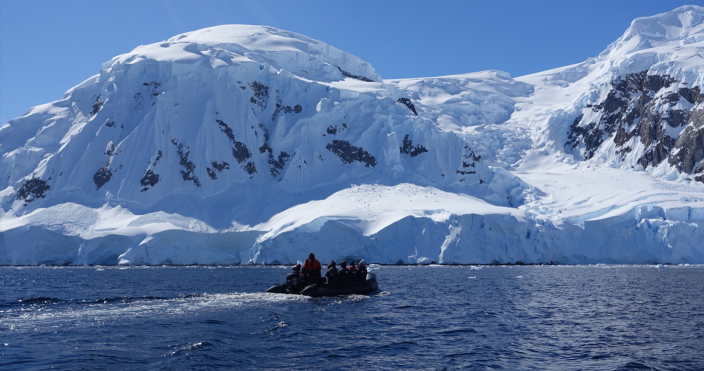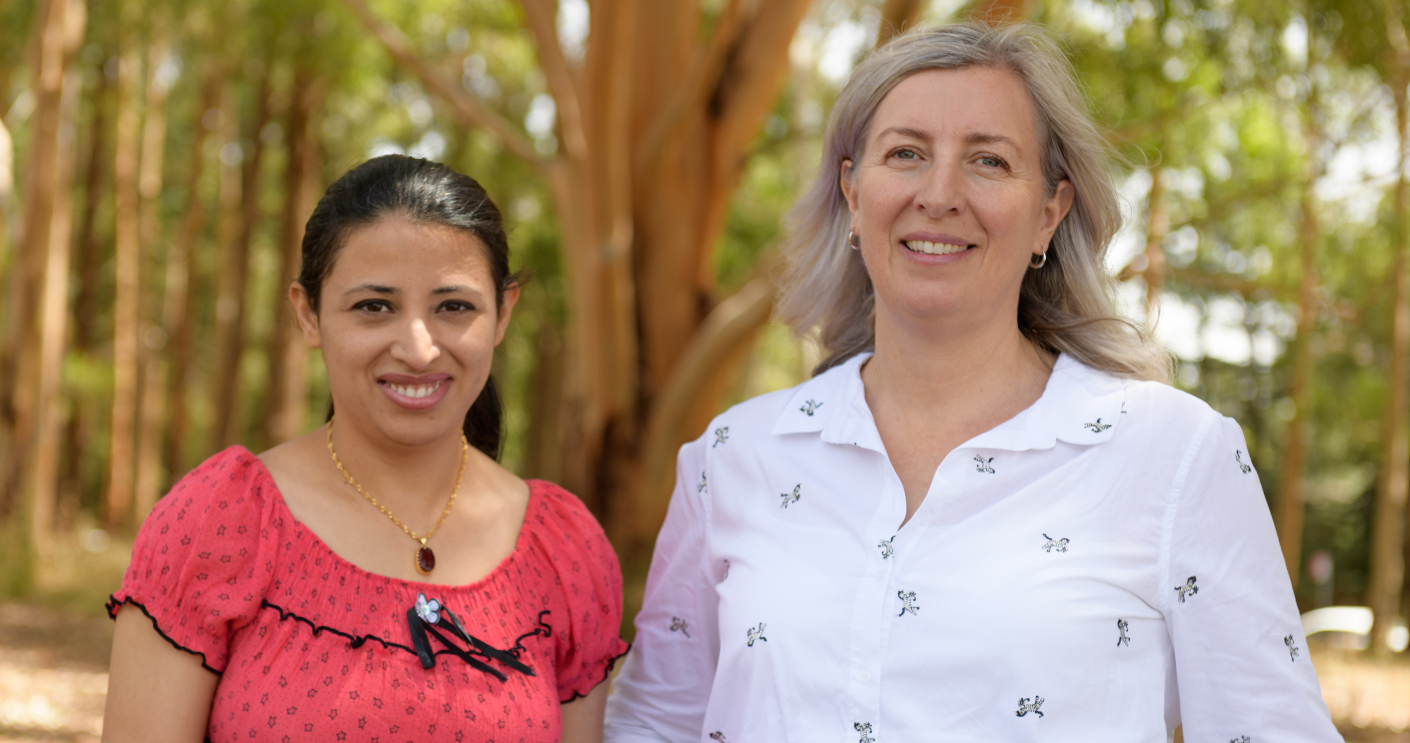Having reached great heights in the field of astronomy, Dr Tayyaba Zafar (left) and Dr Katrina Sealey are on a mission to inspire the next generations of female scientists.
Katrina Sealey and Tayabba Zafar are women reaching for the stars, in more ways than one. Both accomplished scientists within Macquarie-AAO, they recently returned from a three-week trip to Antarctica as part of Homeward Bound, a 10-year project building a 1000-strong network of female leaders in STEM. We sat down with them to find out more about this incredible project.
As young girls, did you think a successful career in STEM was within your reach?
Tayyaba: “No. I grew up in Pakistan, and astronomy – the subject was most fascinated with – wasn’t taught there. So I chose to study physics and built my astronomy knowledge through books and online materials. Cultural norms in Pakistan meant I didn’t have the same freedoms to pursue my profession – I had to pave my own way with hard work and optimism.”
Katrina: “I didn’t frame the question to myself in that way – I just knew that I loved science and that I wanted to follow my passion and see where it would take me. Like many women, I was told by school career advisors that my options were nursing or admin. I did not listen and pursued my passion.”
What is the biggest challenge of being a woman working in STEM?
Katrina: “Being alone or feeling alone. But I can see positive changes in this area, particularly at Macquarie. After more than six years as the only women on an executive team, I am now not alone. It’s important to have diversity – I believe this leads to the best outcomes.”
Tayyaba: “Gender and territorial biases. I have always been judged on my gender and ethnic origin, not because of my science.”
One of the goals of Macquarie’s gender equity strategy is to increase the representation of women in senior academic positions, and in STEMM generally. What do you think is the best way of doing this?
Katrina: “Starting with recruitment processes, ensuring they are inclusive and that women are represented in all aspects of the recruitment from applicants to panellists. Then, after recruitment, there needs to be flexible work environments and leadership support.”
Tayyaba: “We need mentorship and coaching – not only while girls are young to lead them to science, but also to keep them in science during the life phases where so many quit their loved profession.
“The other key is flexibility where it’s required. Women need flexibility and support, especially when they are pregnant, breastfeeding, or tending to their families. If you support them when they are in these ‘valley phases’, you’ll help them reach the peak again. And trust me, they are capable of doing it.”
So what’s the Homeward Bound Project all about?
Katrina: “Homeward Bound is a leadership initiative for women in STEM, increasing the leadership and skills of women and providing a strong network to assist with the global underrepresentation of women in leadership positions.”
Tayyaba: “It trains women to not only be the face – and voice – of their fields, but also to talk about the issues challenging mankind, such as climate change. The overall goal is to build future women leaders and change the shape of the planet.”
And why Antarctica?
Tayyaba: “Antarctica was chosen as to let us see the effect of climate change first-hand. And there’s no better place to wake up your inner leader than the pure white continent that is Antarctica.”
Katrina: “Being in a remote environment, away from the disturbances of our busy lives, gave us the opportunity to focus on what we believe is important and reflect on how we can make impact for our collective futures – whether that’s increasing diversity in our workplaces or developing sustainability strategies.”

What knowledge are you bringing back to Macquarie after your year with Homeward Bound?
Katrina: “A key part of the program was the importance of being visible. It’s easy to get caught up in day-to-day work. But to help others and make change we need to be visible, and provide input into outcomes and innovation.”
You’ll soon be heading out on schools outreach, using some of the new skills you’ve gained from Homeward Bound. What do you hope to communicate to the students you speak to?
Katrina: “That they are enough and that they can do anything. They just need to decide what they want to do and then take action to accomplish it. Support and help is all around, they just need to ask.”
Tayyaba: “I will be encouraging girls to be choosing science; telling them why we need more women and how, with their talent, they can illuminate the world.”


 Back to homepage
Back to homepage